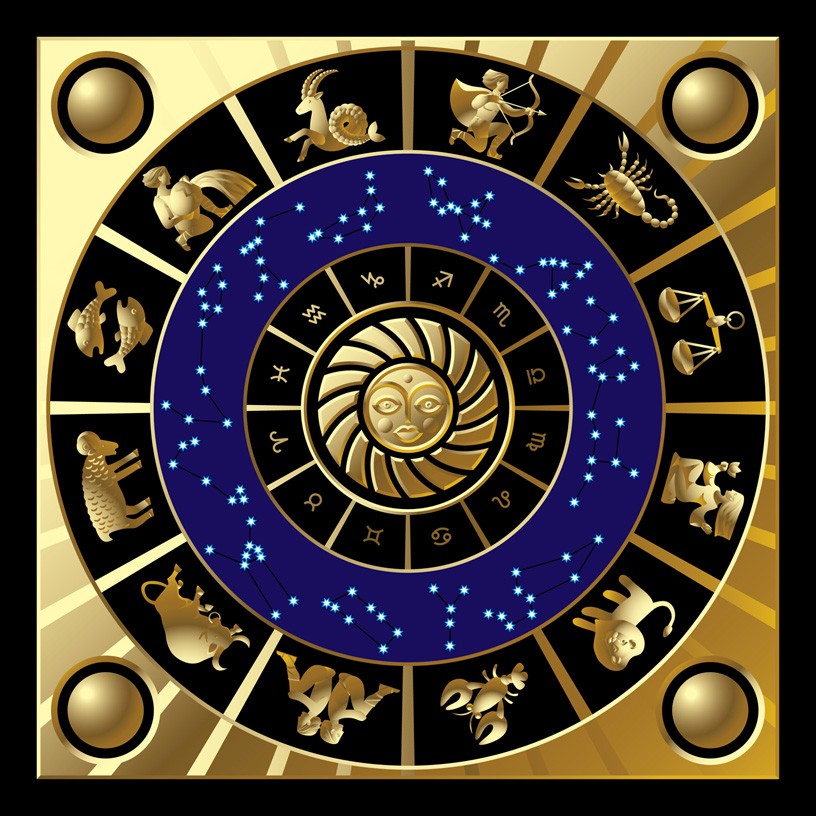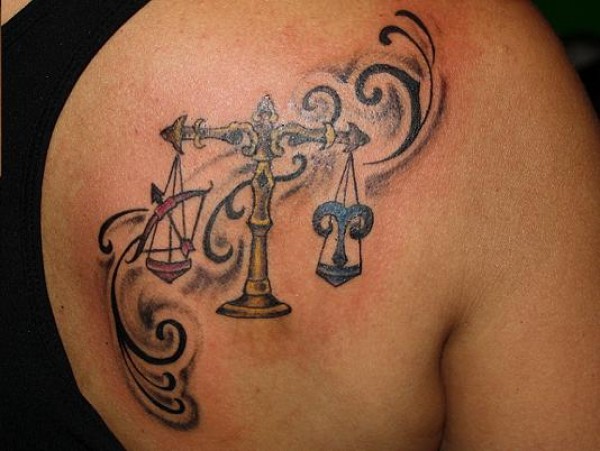This post is part of a series of guest posts on GPS by the undergraduate and graduate students in my Science vs. Pseudoscience course. As part of their work for the course, each student had to demonstrate mastery of the skill of “Educating the Public about Pseudoscience.” To that end, each student has to prepare two 1,000ish word posts on a particular pseudoscience topic, as well as run a booth on-campus to help reach people physically about the topic.
______________________________________________
Defining and Examining Astrology by Narges Afzoud
 A horoscope is a person’s birth chart or natal chart. The horoscope is based on the Ptolemaic system that the earth is stationary, and moves around the sun in fixed patterns. Astrology divides the sky into twelve sections, with different sign of the zodiac based on the mythological characteristics of the heavenly bodies (Aries, Taurus, Gemini, Cancer, Leo, Virgo, Libra, Scorpio, Sagittarius, Capricorn, Aquarius, and Pisces). Some astrologers believe that time especially hours and minutes of birth is very important; however, other astrologers believe that only the month of birth is important for their horoscope.
A horoscope is a person’s birth chart or natal chart. The horoscope is based on the Ptolemaic system that the earth is stationary, and moves around the sun in fixed patterns. Astrology divides the sky into twelve sections, with different sign of the zodiac based on the mythological characteristics of the heavenly bodies (Aries, Taurus, Gemini, Cancer, Leo, Virgo, Libra, Scorpio, Sagittarius, Capricorn, Aquarius, and Pisces). Some astrologers believe that time especially hours and minutes of birth is very important; however, other astrologers believe that only the month of birth is important for their horoscope.
Astrological predictions are based on the positions of certain objects in the solar system when someone is born it will be related with his/her personality, life events such as marriages, divorces, accidents, etc. Usually only the sun, the moon, and five planets like Mercury, Venus, Mars, Jupiter and Saturn are known in antiquity. These stars and planets determine the best day to do or not do something in your life.
The origins of astrology can be traced back 3,000 years, to the time when people did not have accurate calendars and almost all cities depended on efficient agriculture. They needed to know when they should plant and when to harvest, and were reliant on the sky most useful for calendar purposes. The oldest personal horoscope was reportedly made for the birthdate of April 29, 410 BC. The Crusades brought the heritage of Greek and Roman culture back to Europe, spreading information about astrology in the process.
Some people confuse astrology with astronomy. Astronomy is the study of physical celestial phenomena and it is a field of science. In contrast, astrology is pseudoscience and is about person’s personality based on his/her birth day. It is interesting that most countries believe in the same signs.In the 20th Century, the scientists studied astrology to find out if there were any actual correlations between the positions of the planets and individual’s birth, but they came with no statistically valid connection, relation, or correlation that would give any support to any part of astrology.
 At the present time in America, 90% of people who are under the age 30 are said to know their “sign”. Some people are very passionate about their zodiac signs and the even get tattoos with them. In some countries where people are really believe astrology even before getting married or dating try to find a match which in horoscope recommended. Almost every country’s newspaper or other forms of media have daily horoscope, because they know lot of people believe them and will buy, read, or listing to them. Some other people make good money off the people who believe horoscopes to be accurate and specific.
At the present time in America, 90% of people who are under the age 30 are said to know their “sign”. Some people are very passionate about their zodiac signs and the even get tattoos with them. In some countries where people are really believe astrology even before getting married or dating try to find a match which in horoscope recommended. Almost every country’s newspaper or other forms of media have daily horoscope, because they know lot of people believe them and will buy, read, or listing to them. Some other people make good money off the people who believe horoscopes to be accurate and specific.
The horoscope is a general prediction which can happen to anyone at anywhere and anytime. It is not specific that why most people believe and interpret for themselves as a true statement. Most philosophers and historians of science agree that astrology is a pseudoscience. Pseudoscience tries to look like science, but it is not testable does not support theory, and there are no fact. For example, a Pisces horoscope says, “ You won’t make any real change while still holding to the same ideas, co-dependency is something you can be dealing with in a major manner, whether it be some commitments and cutting back on others …….” So, none of this sentence is telling something about me specifically, and it is not something that I can do or not do to make sure is really effecting on my life or my future.
Why do most people believe in astrology? Some people believe that astrology and psychology are connected to each other. Since people like to know about everything, especially about their solving current situation and their future, as a curiosity they read and follow astrology. Usually, most people like to be cared about by someone or something, they want someone that talks about them. Since astrology is talking about people’s days, events, and predicting usually good things in advance and advice friendly. Some people really like it; especially if accidentally they get something that astrology was predicted for them. On the other hand when someone reads a prediction that something interesting would be happen in her/his life, psychologically those people will looking for that happen, and automatically they cause that happen because they are looking for that event and somehow they have a convenience then that event is on the way. Then they think the predicted of astrology was true. That is why they going read it and do it again. When people feel satisfy of hearing, reading, or doing something, they will do it again.
Astrology is a pseudoscience for many reasons. First, we are affected by the planets and stars which has no method of affecting a person. Second, if we think for some reason astrology works; there are so many unaccounted stars and plants that they would be inaccurate. Finally, many experiences have been shown that astrology does not working, astrology just talks generally, and nicely about everything and everyone so, we know anything can happen to anyone. Astrology is pseudoscience, because it does not make precise predictions that can be tested and is not based in logic and scientific method.
The bottom line is, 3,00o years ago it was acceptable to see and hear that people who believe astrology; they did all of their events based on astrology, such as their agriculture, marriage, job, having baby, etc, because there were not alternatives. There were not books, technologies and other facilities, so they had to believe astrology because it was the only choice they had. But it is so sad that we still see and hear about astrology again in 21st century especially in the industrialized areas such as America and Europe. Some people want to be stupid and not use their brain, because if someone has a working brain they will not need to use astrology or an astrologer. We have lots of ways to know, detect, test, and believe or, reject something. As we know, everything is about money and business. As long as people’s knowledge is less it means other people with better knowledge are making good money.
